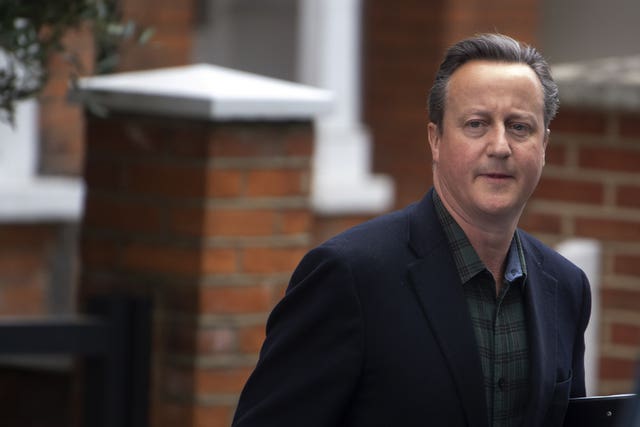
James O'Brien 10am - 1pm
24 May 2021, 16:54

Former prime minister David Cameron contacted the Bank’s deputy governor to ask for access to a lending scheme the Bank was running.
The Bank of England spent “very little time” looking at whether Greensill Capital would get access to official Covid-19 loan schemes, its Governor said on Monday.
Andrew Bailey, who heads the Bank, said that although his officials had assessed Greensill, it did not drain too many resources.
“We spent very little time on Greensill relative to the larger time … on the broader issues of supply credit finance,” he told MPs on the Treasury Select Committee on Monday.
Deputy governor for financial stability, Jon Cunliffe was directly contacted by David Cameron, the former prime minister who lobbied on behalf of Greensill as Covid-19 hit last year.
In April Mr Cameron asked for Mr Cunliffe for help after his discussions with the Treasury “failed to get anywhere”.
He said that if Greensill was eligible for the CCFF, a Bank of England loan scheme to help business, it could pump billions into small firms.
But speaking to the MPs alongside Mr Bailey, Mr Cunliffe said that considering whether Greensill should be eligible “wasn’t taking up a very large part of my day”.
He added: “They came in with a proposal, it didn’t meet the rules, and we told them very quickly it doesn’t meet the rules.
“They then said can you change the rules?
“And we said, no we can’t charge the rules, talk to the Treasury if you want that … Then they came back with something and said, did it meet the rules?
“And it didn’t take very long to say, no it doesn’t meet the rules.”

Greensill collapsed in March this year, and Mr Cameron’s lobbying for the business has sparked a flurry of questions about the roles of politicians once they leave office.
Mr Bailey said that the sector that Lex Greensill was engaged in is “a very straightforward form of financial activity, not rocket science, it’s not fintech, it doesn’t involve large amounts of innovation.
“Mr Greensill sometimes presents it as if he has discovered the secrets of the universe.
“Certainly there was some innovation around it, there may well have been some useful innovation.”
But he said that the practice of lending money secured against so-called future receivables, sales that are expected in the future, looks like unsecured lending.
Mr Bailey said that he did not think Greensill was a ponzi scheme, something suggested by ex-minister Lord Myners, but the company relied excessively on insurance companies.